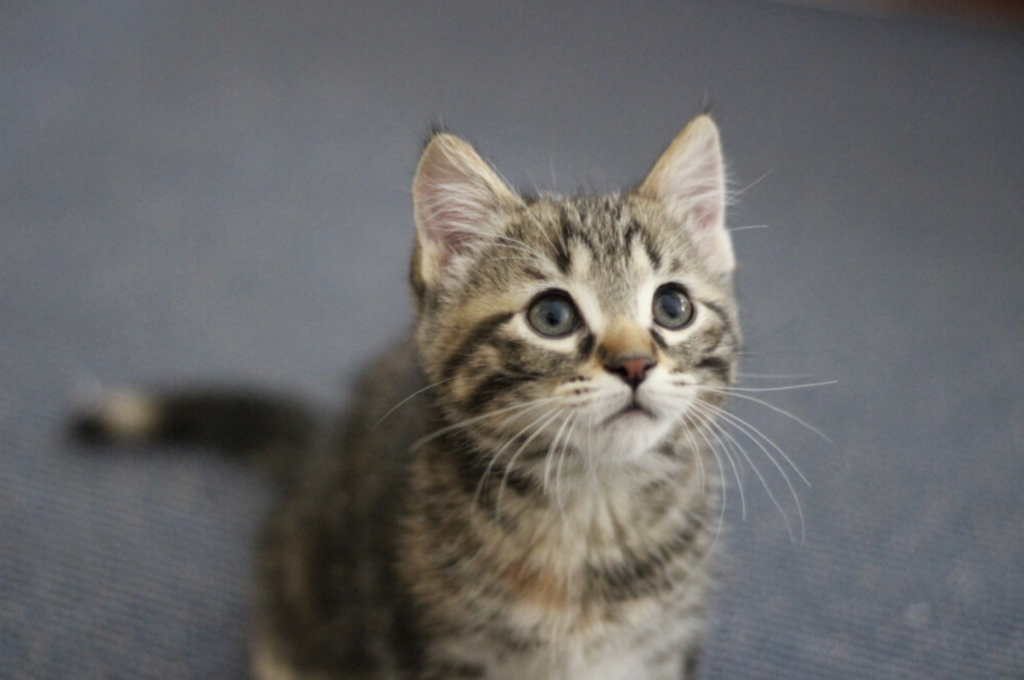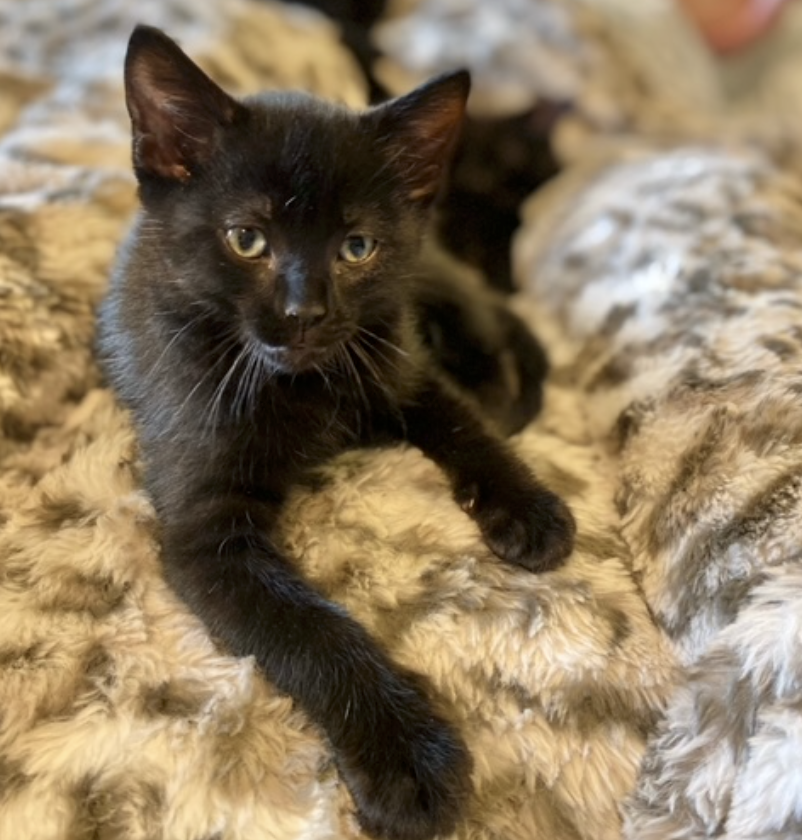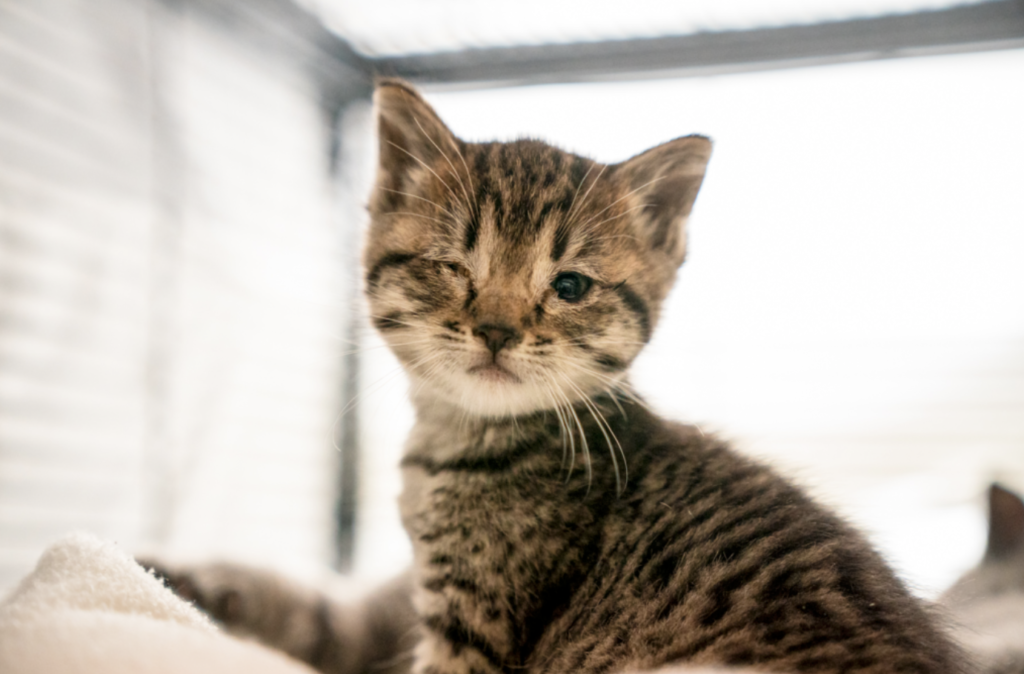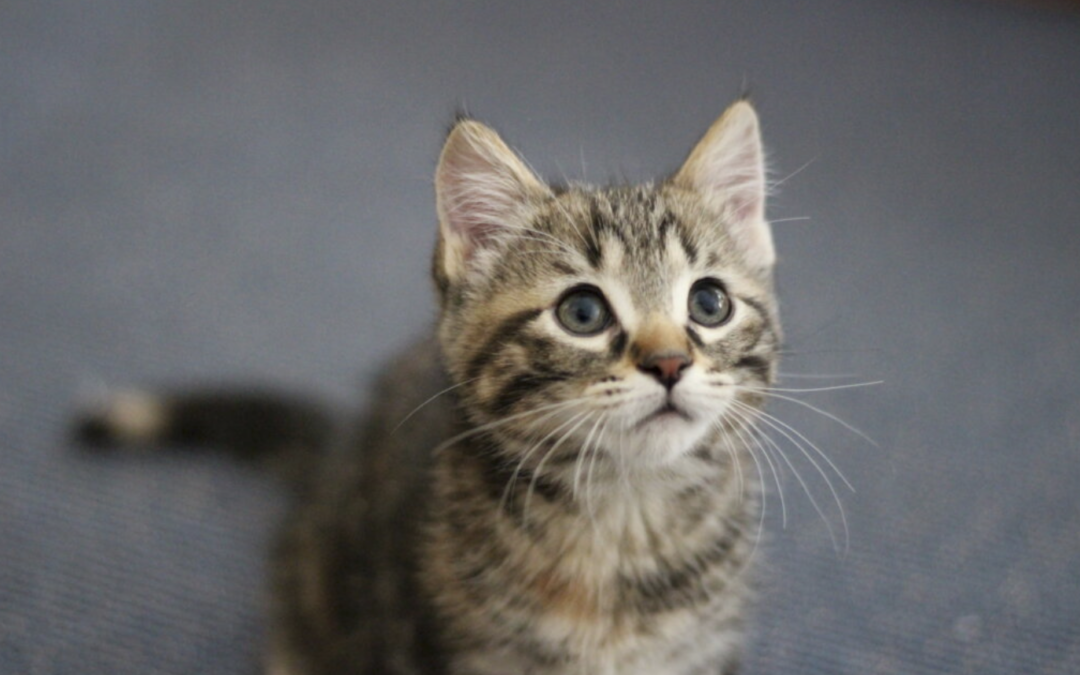Bringing a kitten home is one of the most exciting things you can do! Much like puppies, or really any baby animal, they do require preparation and awareness. Kittens are so sweet and playful, and in some ways they’re easier to deal with than puppies, but they still have their own unique needs and behaviours. That being said, the preparation for a new kitten is still the same as that of a puppy: physical preparation and behavioural preparation.

Firstly, the physical components:
- Gather your supplies! This can look like:
- Food and water bowls
- Beds
- Litterbox, along with litter, a scooper, and ample bags (the compostable ones work great!)
- Collar with ID tags
- Grooming items such as a couple of brushes and a proper claw trimmer
- Lots of toys, including a good scratching post
- Kitten-specific food (kibble and canned food) and treats
- Have pet-friendly clean up and odour control products ready
- Cat carrier
- You have to kitten-proof your home! Much like puppies (and babies), kittens are curious little creatures and they’ll get their furry mitts everywhere they shouldn’t. There’s a few things to keep in mind when kitten-proofing:
- One of the first priorities should be getting anything out of the way that you don’t want to become a toy, such as dangling wires, loose strings, electrical cords, and also any easily breakable objects that may be positioned too close to a ledge. Some things people might not necessarily think about but that can cause some serious intestinal damage are hair elastics, dental floss, and rubber bands, so be sure to have space to keep these items out of reach!
- Be sure to get into the habit of keeping food out of reach too, particularly if you’re eating something with bones, as they can get stuck in your cat’s mouth, throat, or intestines, and they’re particularly dangerous if they’re dry bones that can get broken.
- Make sure your plants are cat-safe! Flowers may be less of a hazard for dogs, since they are normally out of reach anyway, but with cats, practically nowhere is out of reach! Many flowers and plants are poisonous to cats, with some of the biggest culprits being aloe, chrysanthemums, daffodils, eucalyptus, hyacinths, lilies, pothos, tulips, poinsettia and yew.
- Check to make sure any chemical-based products, both of the cleaning and medical varieties, are safely put away, and ideally even locked away. Some cats, mine included, have learned to open cupboard doors! We at the very least make sure that the door our cleaning products are behind is one that can actually close, rather than a cabinet door. Our medications are also stored in cat-proofed spaces, since even something as innocent as ibuprofen can be highly toxic to cats. This also includes things such as lotions and sprays, such as sunscreens and bug sprays, as well as lotions containing essential oils.
- Just like for a puppy, keep a list of necessary contact numbers, such as for the vet, pet hospital, petsitter, and groomer.
- When it comes to introductions, people are easy peasy for kittens. They generally tend to love everyone from every age group! Typically, kitten to kitten introductions are also easier, since they will ultimately grow up together. If you already have a resident cat, depending on their personality, it may take them some time to warm up to the new kitten. Generally, dog friendly dog often get along somewhat quickly after proper introductions, regardless of age difference. Cats are certainly more fickle! In my experience, I’ve had friends who’ve introduced kittens to their resident adult cats with relative ease, but I’ve also had friends who had a solid 3-4 weeks of mediation between their cats. Generally speaking though, introducing a kitten to an adult cat is MUCH easier than introducing an adult cat to another adult cat. The key is always being patient and not trying to force your cats to get along! Boundaries are extremely important to cats, regardless of age. If you have kids, one of the most important things you’ll have to teach them is to be gentle with your new kitten, since they are so much smaller and more fragile than most puppies.
- Follow the schedule for cat vaccinations as well as checkups to make sure all is in order with your kitten’s health. Some warning signs your cat needs veterinary attention include abnormal litter box behaviour, vomiting, diarrhea, noticeable fatigue, any new lumps and bumps, decreased appetite, constant crying, and unusual hiding (this was a big one for me personally, my cat was very stoic and would prefer to hide away when something was wrong).

For behavioural preparation:
- You don’t necessarily need the same strict routine for a kitten as you would with a puppy, especially since a cat doesn’t require walking and training. Despite this, it’s still recommended to maintain a consistent feeding routine.
- Depending on how young your kitten is, it should already know how to use the litter box, but accidents can and do happen. It’s important not to discipline your pet by just yelling at them, remember to have patience with them and look for clues as to why they have had an accident. Make sure to put the litter box in a place that is accessible, use similar litter to what they are used to, keep them in a smaller space when alone, like a bedroom, until they are using it consistently. Generally, as they grow older, cats will only have repeated accidents when something is wrong with their health. Also, be prepared to have some damaged furniture. All the toys and scratching posts in the world couldn’t deter a cat from dabbling in the slight destruction of a couch. Again, it’s important not to yell at your kitten; they are still learning the ropes of what’s okay and what isn’t. From personal experience, we as a family all took the same approach: a stern “No!”, followed by the removal of the cat and the placement of it by their scratching post. What also helped us was to keep the cat tower beside the couch, and we found that it did reduce the amount of times our cat would scratch the couch. Please do not have your cat declawedt. It is illegal in Alberta as of July 1, 2019. .. Also, as any kitten or cat owner will tell you, you may spend all the money in the world on fancy toys or a fancy bed, but nothing will beat the comfort of a cardboard box or the entertainment of a stray receipt.

Ultimately, cats are fairly low maintenance,they don’t need walking, training, or frequent grooming, and they’re independent critters! They’re a more quiet pet option too, without necessarily missing out on any exciting personality traits or loving personas. They can reduce stress and improve your mood, offer great companionship, and they can also teach children about responsibility; they’re a wonderful addition to singles, couples, and families alike!

Ioana Busuioc
Blog and Website Content Creator
Got ideas for our next blog? Email me at [email protected]!

